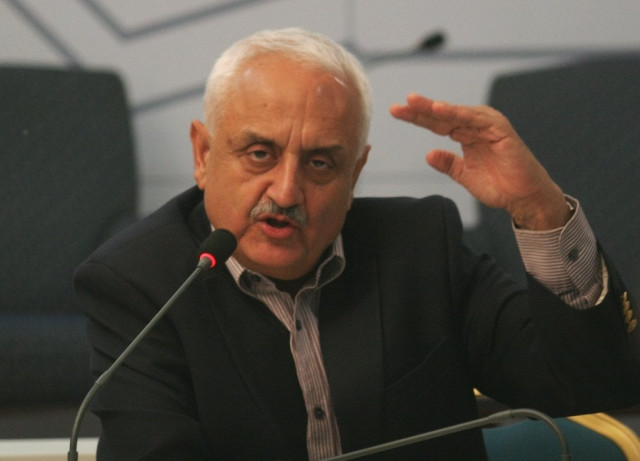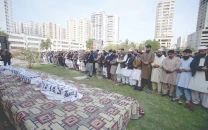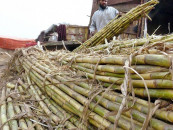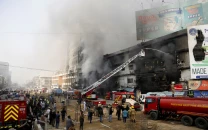Karachi Literature Festival: Trying to ‘burrow under barbed wire fences’
Editor of Himal Southasian speaks on the importance of being South Asian.

Kanak Mani Dixit. PHOTO: EXPRESS
Kanak Mani Dixit hails from Nepal, but he would like us to know and understand that he is South Asian, and we are too. For the past 15 years he has published the journal, Himal Southasian, from Kathmandu, which produces what he calls ‘cross border’ journalism.
Setting the tone for Dixit’s talk was veteran journalist Ghazi Salahuddin. “All of us write South Asia as two words, Mani says no, South Asia is one word. It’s his innermost desire to make it one word”.
Dixit himself stressed the importance of a South Asian identity. “I feel that we are not fulfilled, individually in South Asia if we make our primary identity our citizenship or nationality. There’s one identity above it all which also needs to be considered…that is that of our South Asian identity.”
Addressing the work Himal does, he said, “It is more about doing journalism that looks at issues of economics, identity, geopolitics.” He added that Himal’s goal is not to cater to Western readers, but to bring change within his “own people”.
“The Himalaya is like a clothesline, from the Karakoram to the Hind Kush, on it hangs the subcontinent… so why not make a magazine for all of South Asia?”
Dixit argued that so much national journalism is “coloured by a nation-state perspective”.
The crux of the problem, he says, is that we develop our nationalism based on our capital elites. “So Pakistan is defined by Islamabad, India by New Delhi…there is a coagulation of interests at the center level. When that happens, we lose something. And that is what we’re trying to undo.”
Dixit said that he accepts all existing boundaries within South Asia, but says the publication’s efforts are to “burrow under these barbed wire fences that separate us”.
Pervez Hoodbhoy, who was in the audience, commented that on a recent trip to Nepal, he was struck by the similarity to every part of Pakistan. He noted that there was a “cultural continuity” that he felt in the country.
The biggest challenge for a South Asian, says Dixit, is the quality of empathy. “This implies that you are able to critique yourself and that you are able to understand the other person’s joys and pains—and do something about it.”
He said the great liberal spirit of Pakistani society which has been clouded over by layers of the India-Pakistan rivalry.
“When I read Pakistani press in English I do realize there is more challenge to the Pakistani state by Pakistani intellectuals and civil society than their Indian counterparts,” said Dixit.
“My personal, non-historian take, in terms of challenges for the Pakistani state is that I feel that history was taken away from Pakistan…history that it should consider its own,”said Dixit. “With the stroke of a pen of Nehru, the history of India was hijacked by one country, which is India the nation-state.”
Published in The Express Tribune, February 17th, 2013.



















COMMENTS
Comments are moderated and generally will be posted if they are on-topic and not abusive.
For more information, please see our Comments FAQ